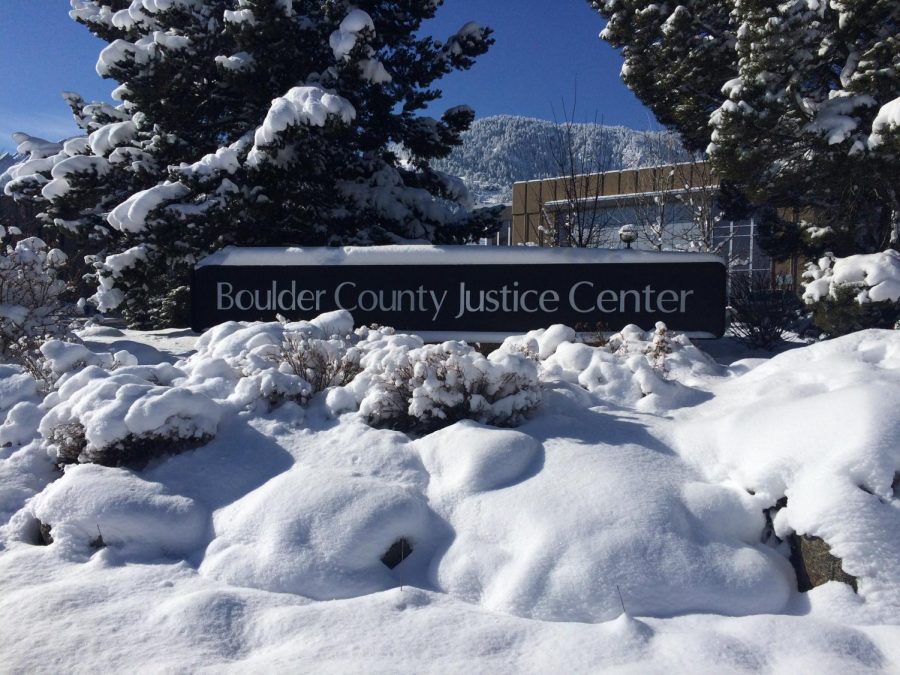Sexual Assault Preliminary Hearing: What There is to Know
A Boulder High senior appeared in court for his preliminary hearing. The student stands accused of a Class IV felony sexual assault against a classmate.
Editor’s note: The charges against this defendant were dismissed and the records in this case were sealed by a judge. As a result, The Owl has elected to remove the defendant’s name from this article.
A Boulder High senior and varsity soccer player appeared in court on Thursday, January 23, 2020 for his preliminary hearing. First arrested on November 27 of last year, the defendant stands accused of a Class IV felony sexual assault against a fellow classmate. Since his first arrest, several other purported victims have stepped forward, and his current charge-list has increased to include three more counts of sexual assault, one count of second-degree kidnapping and one of second-degree assault.
The defendant’s Thursday hearing concerned only the original allegations.
The purpose of a preliminary hearing is not to determine guilt or innocence, but rather to determine whether there is probable cause to believe that the defendant has committed the crime for which they stand accused. Judge Jonathan Martin ruled this was, in fact, the case and set the defendant’s arraignment for March 6 at 8:15 a.m.
It was a full court, the gallery packed with multiple Boulder High students, including several members of the soccer team. Conversations overheard before and during the hearing itself suggested many were there in support of the defendant.
A low hum of chatter hung over the courtroom, but when Judge Martin called out the defendant’s name, a hush fell over those in the gallery. The defendant stood up from his seat between his parents in the second row and walked up to the defendant’s table in near silence, his two defense attorneys beside him.
Detective Beth McNalley, the lead investigator for the case, was the sole witness for both prosecution and defense. The woman the defendant allegedly assaulted did not make an appearance. Because she currently still attends Boulder High, her identity will be kept anonymous in order to respect her privacy.
Detective McNalley offered graphic descriptions of the assault itself, most of which The Daily Camera covered in their initial report of the defendant’s arrest. McNalley told the court that when she interviewed the woman, “there were multiple times when her voice would crack when going over the details of the case—she was visibly upset.”
According to McNalley’s testimony, the woman told her that before the assault itself, the defendant made multiple sexual advances, during which time she pushed him off and told him to stop an estimated seven times.
The main piece of evidence used in this portion of the hearing was a series of photographs concerning a Snapchat conversation held between the woman and the defendant after the event occurred. The photographs were taken by a third party, as the app would have alerted the defendant if she had screenshotted their conversation herself.
During the conversation, the woman asked the defendant what he would call the events of that night, listing out “assault,” “violation” and “rape” as possible examples. When asked if he agreed with her assessment, the defendant admitted to bad judgment.
In another conversation, McNalley stated, the defendant apologized for “using her” but did not admit to the allegations themselves.
Mike Rafik, one of the defendant’s defense attorneys, spoke next. His primary argument was one of implicit consent, and he brought into the conversation both the accuser’s previous behavior toward the defendant and what she was wearing at the time, bringing up, among other things, that she and the defendant followed each other on Snapchat, that the defendant flirted with her in class, and that, at one point before the event in question, she’d said she found the defendant “cute.”
During Rafik’s cross-examination of McNalley, the prosecution posed multiple objections on evidence and reasoning alike. One such piece followed the same tack as above and analyzed the accusor’s alleged shift “into a more comfortable position” during the act itself. Another objection occurred when Rafik attempted to bring in a video from the accuser’s interview with McNalley, at which point Judge Martin advised Rafik to simply question McNalley herself on the subject. Judge Martin sustained both objections.
All in all, the evidence presented by the prosecution was enough for the judge to rule probable cause. the defendant’s case will continue on March 6 in the Boulder County Combined Courthouse.
With the defendant’s trial drawing nearer, we at The OWL find it important to note that testifying students will remain anonymous in future publications in order to protect all parties’ privacy.


